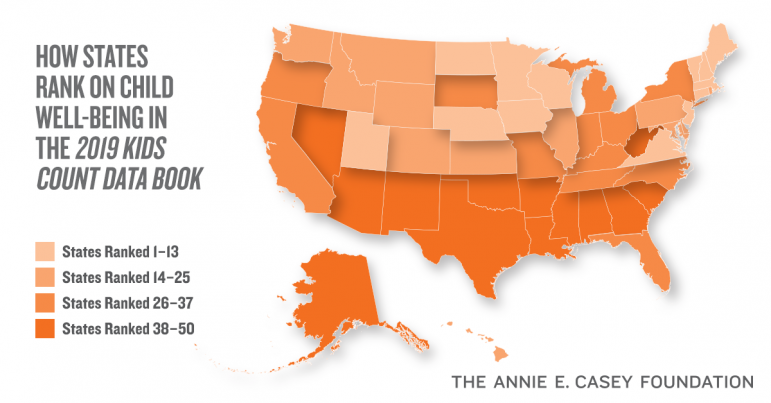Overall on children’s well-being, Alabama came in 44th nationwide, down from last year’s ranking of 42nd in the country. That’s according to the latest KIDS Count Data Book, released annually by the Annie E. Casey Foundation. The report ranks the well-being of kids across the U.S. The publication includes indicators of health, education, economic well-being and family and community. This year’s report is based on data from 2017 from sources such as the Centers for Disease Control and the Department of Education.
Despite that decline in rank, the state progressed in several areas. For example, from 2010 to 2017, there was a big drop in the percentage of high schoolers not graduating on time.
The nonprofit VOICES for Alabama’s Children analyzed this year’s findings. “On the one hand, we’re excited to see improvements,” Rhonda Mann, deputy director of VOICES says. “But then when you look at how we compare to other states, and that’s the rankings, we struggle to keep up.”
The teen birth rate exemplifies this. In Alabama, there were 44 births for every 1,000 female teens in 2010. By 2017, that rate dropped to 27 births. Yet the state still ranks behind other states in this category. Nationwide, from 2010 to 2017, the teen birth rate declined from 34 to 19 births for every 1,000 female teens.
In this year’s KIDS Count Data Book, which is the 30th edition, New Hampshire ranked first and New Mexico came in last. Alabama stood out nationally for its low percentage of children without health insurance. In 2017, 3% of the state’s children were without health insurance, compared to 5% nationwide. Overall, this indicator has improved since 2010, likely related to federal mandates under the Affordable Care Act.
Mann says for Alabama, the KIDS Count Data Book helps identify areas for improvement, including the need to increase funding for educational programs.
“Our mantra is what gets measured, gets changed,” Mann says.
Later this year, VOICES for Alabama’s Children will release the Alabama Count Data Book, which will feature county-level data.

